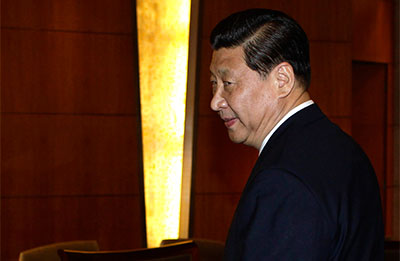Top figures at two outspoken newspapers in China were shuffled or suspended this week, according to online news reports.
Lu Fumin, chief editor of Guangzhou’s New Express, was “shuffled sideways in a move that effectively spells his removal,” according to Hong Kong University-based China Media Project. Although Lu has been given an equally senior post at the Express’s parent paper, Yangcheng Evening News, the media project and other analysts say the move signals a staffing overhaul designed to restrict the outspoken news outlet in advance of the country’s upcoming leadership changes.
In an apparently unrelated incident, Lu Yan, publisher of Shanghai’s Oriental Morning Post, was also shuffled, and Deputy Editor Sun Jian suspended, according to Hong Kong-based South China Morning Post.
The motive for the actions remains unclear. A July 10 article about Vice President Xi Jinping’s youth reprinted from another newspaper which was censored from the online edition of New Express is one possible reason, according to China Media Project. South China Morning Post, citing an unnamed local journalist, said Shanghai’s Communist Party Secretary Yu Zhengsheng was unhappy with the Oriental Morning Post’s stories, but did not elaborate. Sun Jian had also posted the cover of a book about Chen Xitong, which analyzed the former Beijing mayor’s role in the 1989 Tiananmen crackdown, to his personal microblog account, the South China Morning Post reported.
Personnel changes can be an effective way to neuter a publication that pushes the boundaries in its coverage, according to CPJ research. So although we don’t know exactly why these two papers are under fire, and local journalists are unlikely to talk about it on the record, it’s safe to assume that the censors have decided it is better to be safe than sorry in advance of the sensitive political hand-off coming later in the year.
Our concern is that with sensitive periods occurring so frequently in China, and with crackdown the new normal for so many activists and journalists, there’s no knowing if or when the censors will loosen their grip. Meanwhile, fellow journalists in Guangzhou and Shanghai will likely be more circumspect for a while, lest the same fate befall them.
